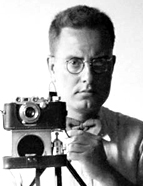

Upon conclusion of his secondary education at the Liceu Passos Manuel (1921-28), Orlando Ribeiro completed a degree in History and Geography at the Faculdade de Letras de Lisboa (1928-32), with conflicting memories as to the quality of the teaching he had received. He mainly recalled the beneficial, albeit brief influence of two of his Masters, who had met with an early death: Manuel de Oliveira Ramos (1862-1931), an elderly, blind professor who had taught him how to effectively take notes of the readings Ribeiro made for him, and Silva Teles (1850-1930), a medical doctor of the Navy, born in Goa, who had lectured Geography from 1904 in Curso Superior de Letras [former Faculty of Arts ] and whose classes had been “beautifully taught”. Ribeiro considered Silva Teles’s sucessor, Luís Schwalbach (1888-1956), to be a mediocre teacher. Notwithstanding the efforts of Leite de Vasconcelos to arrange brief meetings between Ribeiro and Aristides de Amorim Girão (1895-1960), a renowned Geography Professor at the Universidade de Coimbra [Coimbra University], the relationship between these two strong-minded characters had never been easy. The sudden invasion of France by Nazi forces in May 1940 had forced Orlando Ribeiro to take up the post of Professor Extraordinário [non- permanent position] in Coimbra, which he exchanged in March for the position of Full Professor in Lisbon.
His education had been marked by two major influences. First, the influence of Leite de Vasconcelos between 1930 and 1936. The elderly scholar had taught him to systematically travel across the diversified Portuguese territory and to make friendly acquaintances with the villagers, systematically taking note of his observations. Shortly afterwards, Orlando Ribeiro had joined the international French School of Geography, in Paris, directed by Emmanuel de Martonne (1873-1955) and Albert Demangeon (1877-1940), to become a disciple of both between 1937 and 1940. In his “Paris years”, he had socialised with masters and fellow students from different fields and nationalities, acquiring a perfect command of the French language while practising English and toiling with German (Mestres, Colegas, Discípulos, 2016-17). He had then embarked upon a new doctorate, under the joint supervision of De Martonne and Demangeon, on Beira Baixa, the vastly diversified transition region between the North and South of Portugal.
While Orlando Ribeiro was highly familiar with Portugal, he knew nothing about the Spanish regions, even the neighbouring ones, as the dramatic Civil War had made it impossible to visit Spain between 1936 and 1940. However, Franco’s triumph would lead to the rebirth of Iberian scientific contacts.
